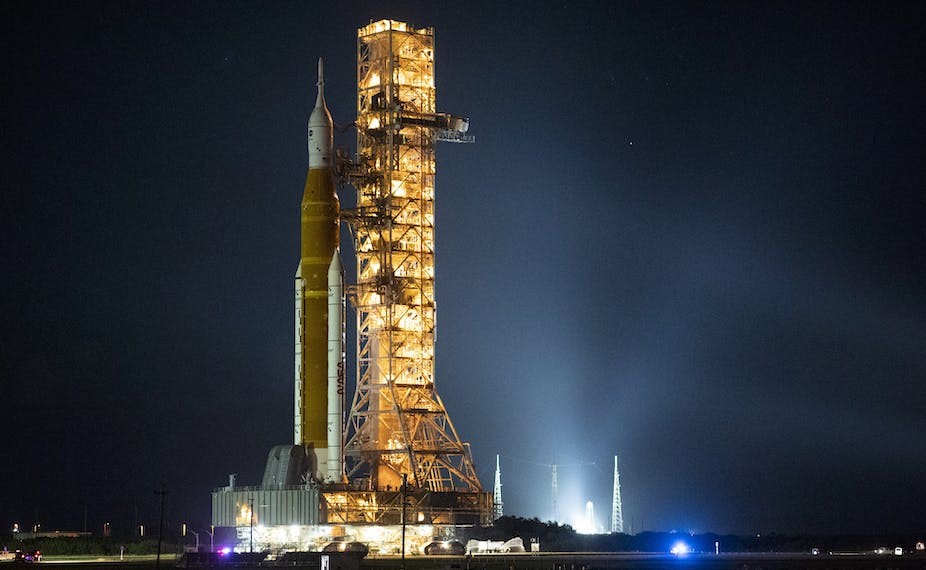The US-Africa Summit should make it clear that alignment of respective goals, priorities, and actions is in the interests of the US and African countries.
President Joe Biden will host the second peak United States-Africa leaders in mid-December 2022.
THEemphasis will be placed on eight areas: economic engagement; peace, security and good governance; democracy and human rights; regional and global health security (including COVID-19 recovery and pandemic preparedness); food safety ; climate change ; links with the diaspora; and youth education and leadership.
Of the 55 African heads of government, 49 were invited to the summit. Burkina Faso, Guinea, Mali and Sudan are currently suspended from the African Union due to coups, and therefore were not invited.
Western Sahara (officially called the Sahrawi Arab Democratic Republic), although a member of the African Union, is not recognized by the United States and was therefore not invited. The United States does not exchange ambassadors with Eritrea, hence its exclusion.
La first edition of this summit was held in 2014, during President Barack Obama's second term. The convening of this second summit may suggest that Africa is important for the current American administration.
The meeting has no specific theme, but a side event on space is welcome.
For Africa, space is one of the flagship programs of Agenda 2063, while for the United States, space is a critical area because a degradation or denial of access to its satellite infrastructure would have considerable impact on its national security, economy and people's livelihoods.
It is therefore important to align the priorities and interests of the United States and Africa for the planned meeting to be successful.
Expectations of the United States-Africa Space Forum
Le Space forum has three main themes for discussion: the climate crisis, the promotion of responsible behavior and the strengthening of cooperation in science and commercial space activities.
These themes are consistent with the US Space Policy Priorities document released about a year ago.
As stated in this document, the two priorities of the United States in space are:
- maintaining a robust and accountable U.S. space enterprise
- the preservation of space for current and future space generations.
The United States wants to maintain its leadership in space, develop space capabilities to respond to climate change, and boost its commercial space sector.
It is also important for the United States to defend its national security interests and guarantee access to space for its future generations.
It seems that Africa is not going to contribute to the agenda of the planned space forum. Nevertheless, Africa's approach and contributions must be articulated around the policy and strategy African space.
Africa's overarching goal is to meet the continent's development needs while being a responsible and peaceful user of space. Its main priorities are socio-economic development, access to space-derived data, products and services, development of the local space industry, corporate governance and management, continental space coordination and partnerships. beneficial.
Alignment of interests
The space agendas of the United States and Africa are not divergent, they are only driven by internal interests. Efforts are therefore needed to align their respective policies and actions for mutual benefit.
For example, climate change affects Africa's social, economic and environmental needs. So it's not just a priority of the Biden administration.
La 27th conference of the parties (COP27) of the United Nations Framework Convention on Climate Change (UNFCCC), held in Sharm El-Sheikh, Egypt, highlighted that most of the observation and data gaps lie in developing countries.
Thanks to space and satellite technology, these gaps can be filled. Satellites are therefore the heart of the Global Climate Observing System.
Space technology also offers tools for climate mitigation and adaptation. Knowledge and technology sharing is therefore necessary to fill the gaps in developing countries.
Second, Africa is committed to being a “responsible and peaceful user of space”. This means that African countries undertake not to take measures that could affect the ability of other countries to operate in space.
Global efforts to promote a responsible behavior in space and space sustainability.
Discussions on the signing by African countries of chords of artemis, led by the United States, are expected to be discussed at the forum. These agreements constitute a set of principles for participation in the US-led space exploration program, called Artemis.
African countries need to approach this framework with a clear understanding of the costs and benefits. The African space strategy also highlights space missions, technologies, operations and applications, which should guide them in their decision-making.
With respect to the third theme, supporting Africa's commercial space industry is in the interest of the United States and Africa. The United States must consider African countries as allies and therefore remove barriers to knowledge sharing, trade and exports. Investment in Africa's commercial space sector is expected to be discussed at the summit.
In addition, efforts should be made to strengthen links and networks between universities and research institutes. This point should be addressed in forums on education, youth and diaspora engagement.
Beyond Space Forum
There are several potential areas of space partnership between the United States and Africa, particularly in areas of interest to the African space program: Earth observation, satellite communication, satellite navigation and astronomy. .
The US-Africa Space Forum could become a permanent platform for exchanges, policy alignment and trade facilitation. This effort will strengthen the overall relationship between the United States and Africa.
Etim Offiong, Scientific Officer, Obafemi Awolowo University
This article is republished from The Conversation under a Creative Commons license. Read the original article.
